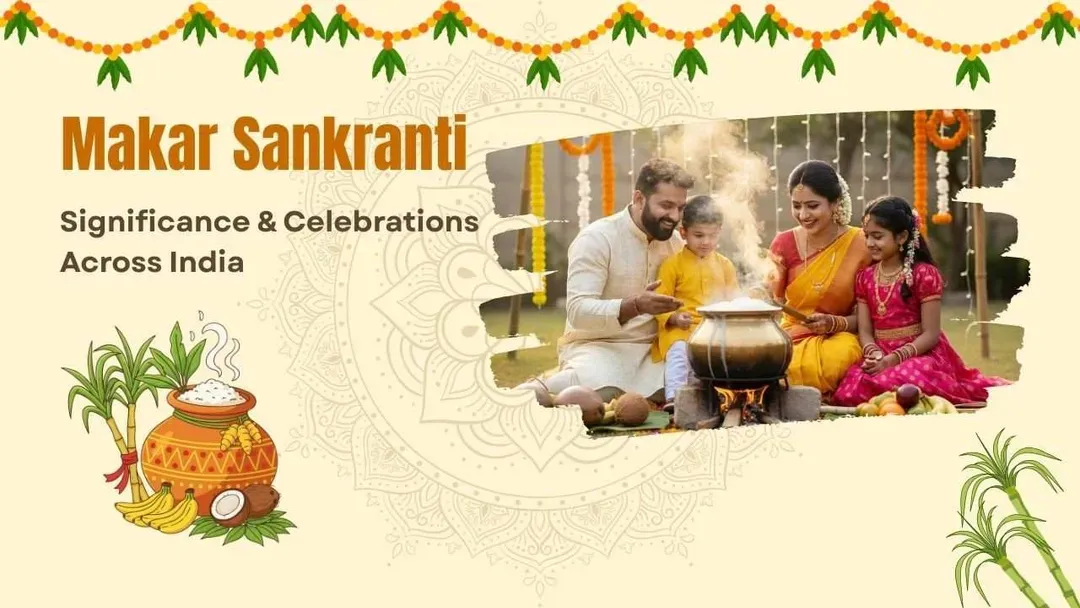Makar Sankranti: Significance & Celebrations Across India
Introduction
India holds deep respect for farming and food, and Makar Sankranti beautifully symbolises this gratitude. The festival becomes even more vibrant with the touch of local culture and traditions. In this blog, we explore the celebrations of Makar Sankranti across different states of India, and the date on which the festival is observed.
How is Makar Sankranti celebrated in different parts of India?
1. Pongal, Tamil Nadu
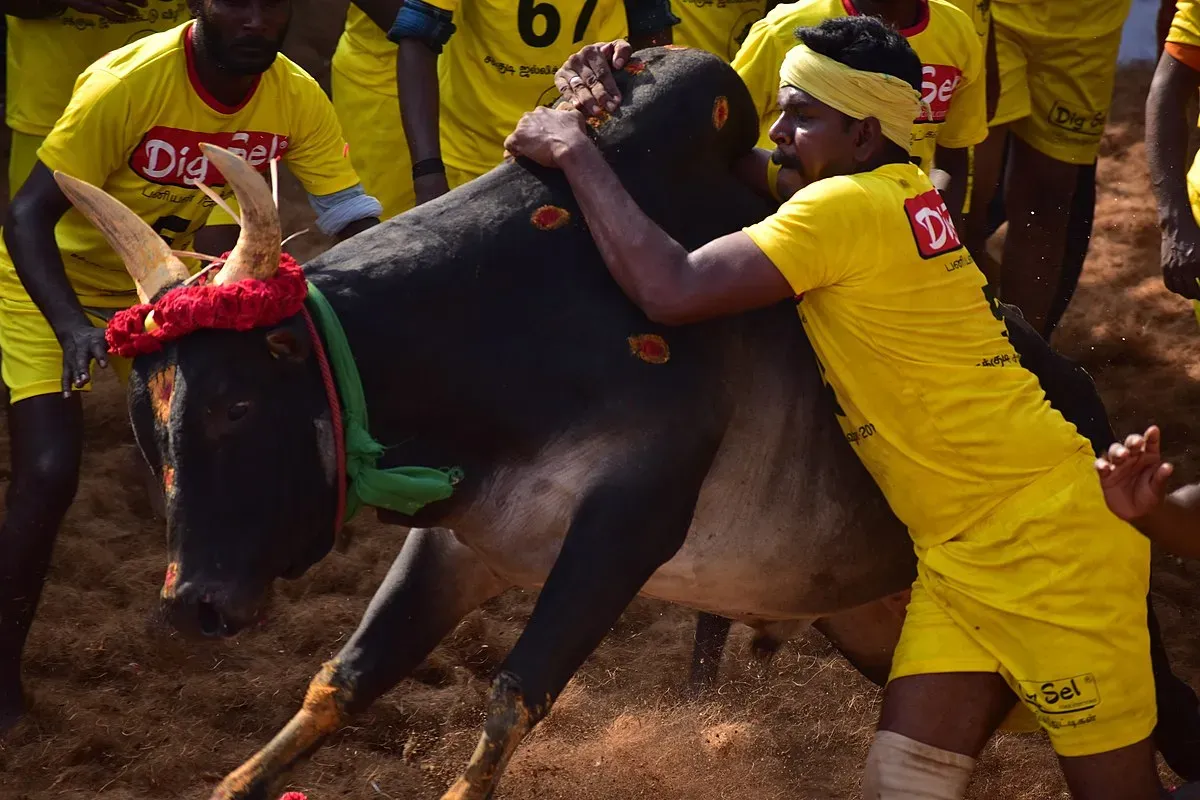
Let’s look at celebrations in Tamil Nadu first, where the festival is observed on a large scale.
Pongal is one of the most significant festivals in Tamil Nadu, which is celebrated to express gratitude to the Sun god, cows, and bulls for supporting the livelihood of the people.
People there believe that it is because of the Sun, the crops grow well, and cows are revered for providing milk. Bulls are also worshipped for their role in ploughing and pulling the cart.
In Tamil Nadu, Pongal is a four-day festival.
- Day - 1, Bhogi Pongal: On this day, the houses are cleaned, and old, unwanted items are burnt. In villages, people whitewash their homes, and decorate them with mango leaves [locally called ‘thoranam’, which is tied on the main door], and colourful rangoli are drawn.
- Day - 2, Thai Pongal: The second day marks the first day of ‘Thai’ month [in the Tamil calendar]. On this day, people pray to lord Sun and offer sugarcanes and pongal [name of a dish].
- Day 3, Mattu Pongal: Cows and bulls are decorated and are worshipped for helping farmers to earn their livelihood. The horns are painted, flowers are tied on their horns and neck, and sandal paste is applied on their forehead. Sports events like ‘jallikkattu’ are hosted in many places across Tamil Nadu.
- Day - 4, Kaanum Pongal: On the fourth day, people spend time with their family and friends. Many local sports events are held, and also some traditional performances are performed on the stages.
Recommended reading: Jallikkattu & Rekla: History, Significance, & Witnessing in Tamil Nadu. Consider reading this blog to know more about Jallikkattu and Rekla races, and where to visit and stay to witness them.
2. Suggi Habba, Karnataka:
- Suggi Habba: In Karnataka, it is celebrated as ‘Suggi Habba’. On the same day of ‘Thai Pongal’ in Tamil Nadu, here ‘Suggi Habba’ is celebrated. People decorate their homes with mango leaves, and colourful rangoli are drawn.
- Ellu Bella: People exchange a special dish called ‘ellu bella’, among friends, relatives, and neighbours. While gifting, they say, “ellu bella thindu olle maathadi”, which means eat ellu bella and speak good words.
This ‘ellu bella’ is a mixture of sesame seeds, jaggery, roasted groundnuts, and coconut pieces.
- Kichchu Haisodu: Same as in Tamil Nadu, the cows are decorated with sandal paste, flowers, bells, and colourful clothes.
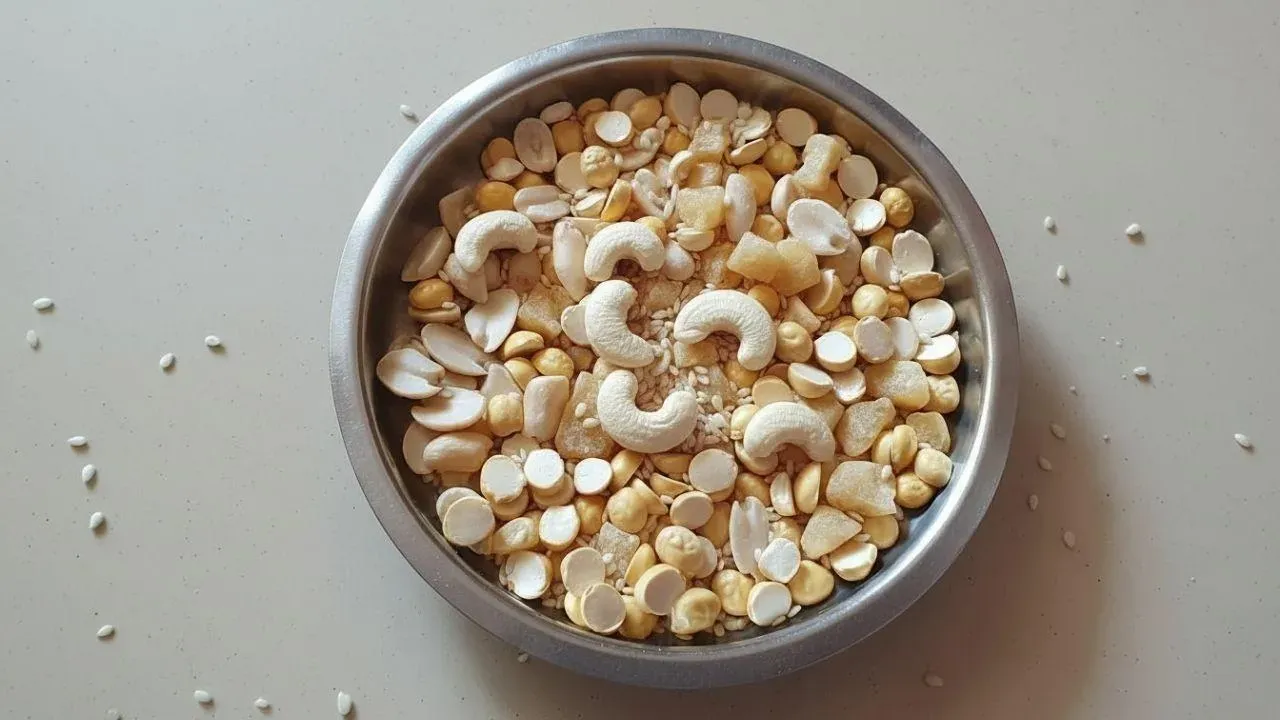
3. Pedda Panduga, Andhra Pradesh
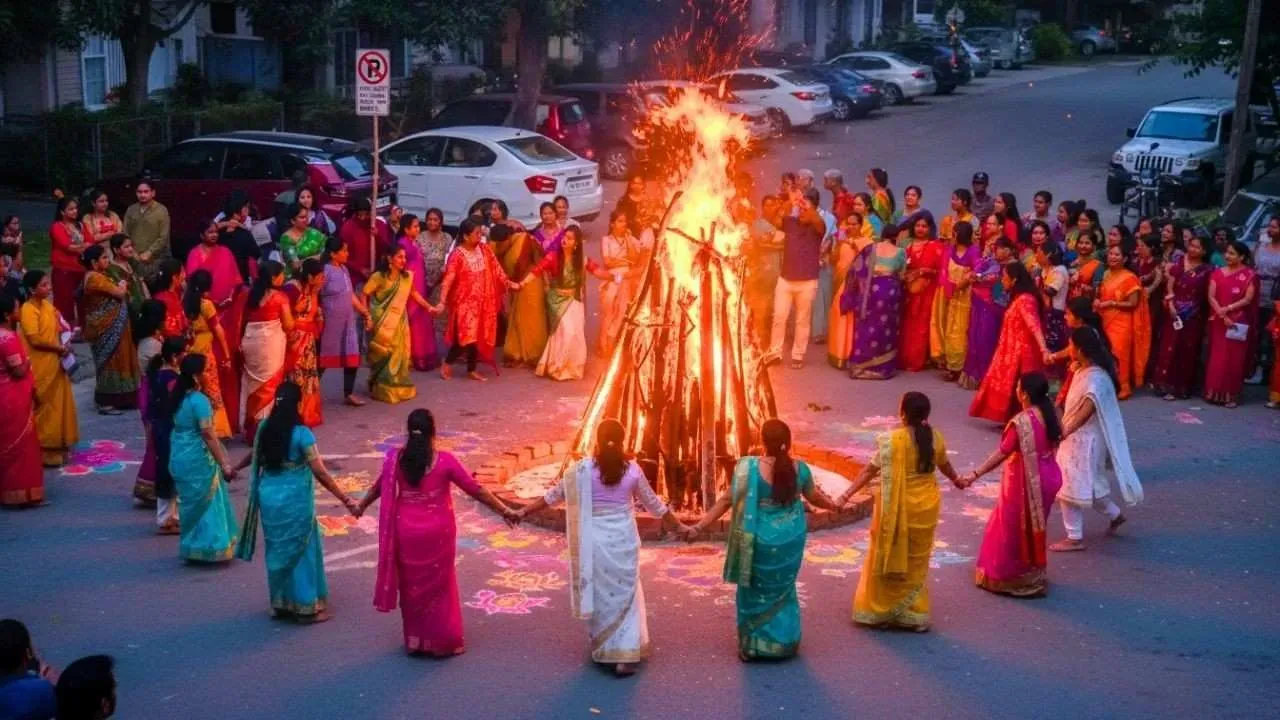
In Andhra, Makar Sankranti is celebrated for four days.
- Day - 1, Bhogi Panduga: On this day, homes are cleaned and people burn unwanted items piled up. The houses are decorated with mango leaves and colourful rangoli.
- Day - 2, Pedda Panduga: People worship the Sun god and offer various traditional recipes as a part of the ritual.
- Day - 3, Kanuma Panduga: On the third day, people worship and express gratitude towards their cows and bulls. They are decorated with flowers, sandals, and clothes. In many places, bullock cart races are hosted.
- Day - 4, Mukkanuma: This is mainly celebrated in the coastal parts of Andhra Pradesh. On this day, special offerings are made for the five elements of nature [fire, water, air, etc.].
4. Makar Sankranti, Maharashtra
- Makar Sankranti is celebrated for three days in Maharashtra, with sweets and special rituals. Special offerings and rituals are performed for the Sun god.
- Traditional sweets: People exchange traditional sweets like ‘Tilgul’ and ‘Puran Poli’ among each other.
- Haldi-Kumkum ceremony: Married women apply ‘haldi’ [turmeric powder] and ‘kumkum’ [vermilion powder] on each other's faces. They also exchange gifts with each other.
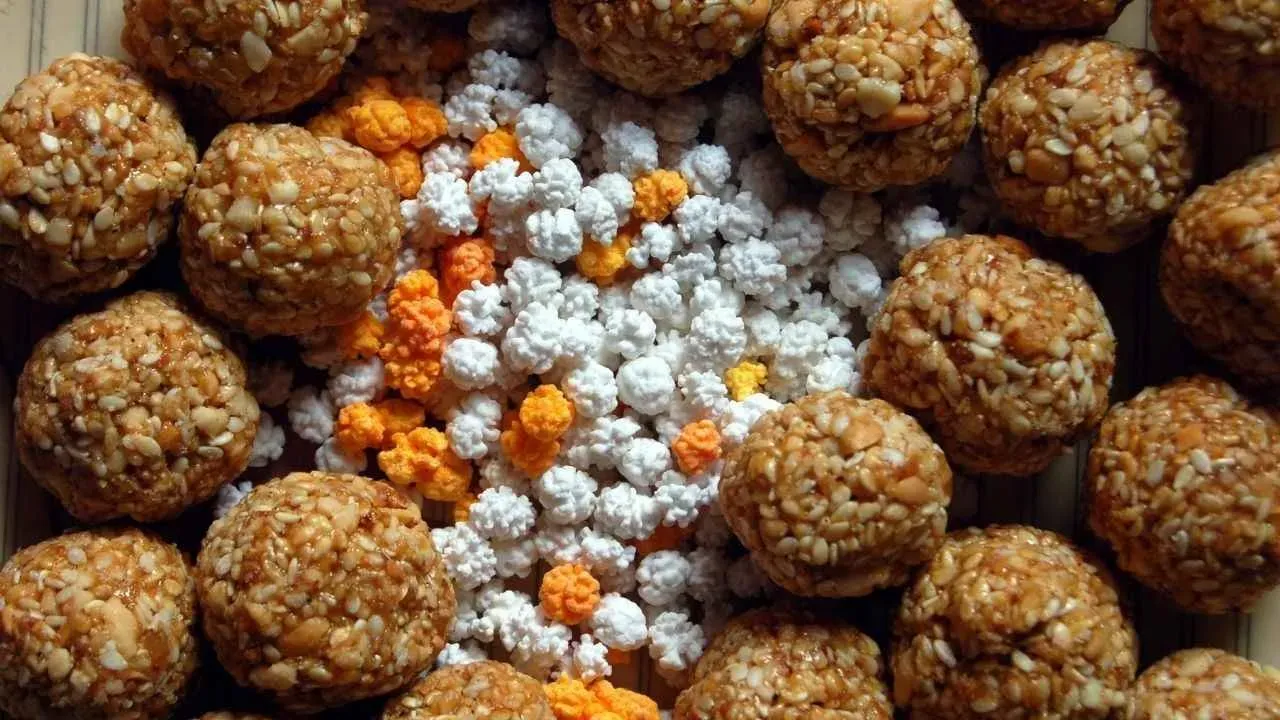
5. Lohri and Maghi, Punjab
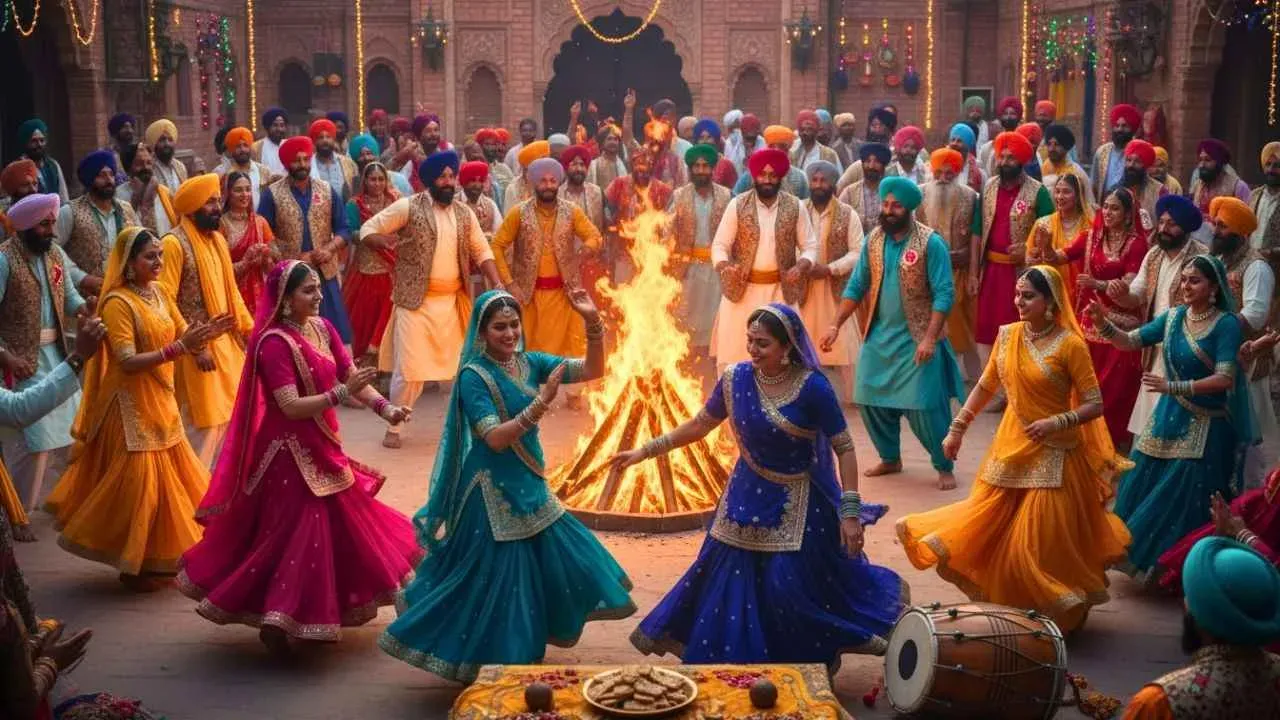
Two-day festival: In Punjab, Makar Sankranti is celebrated as a two-day festival.
- Lohri: Lohri marks the commencement of the harvest of rabi crops. People offer prayers to the Sun and the fire god. The main offerings include sugarcane, rewari, and gajak.
- Bhangra and Gidda: These are traditional Punjabi dances performed on the Eve of Lohri. Men dance ‘Bhangra’ and women dance ‘Gidda’. The dance follows the rhythm of beats from ‘dhol’ [a traditional instrument].
- Maghi: This is the main Makar Sankranti day. People take holy dips and perform special prayers. Some special dishes enjoyed on this day are ‘sarson da saag’ and ‘makki di rotti’.
6. Uttarayan, Gujarat
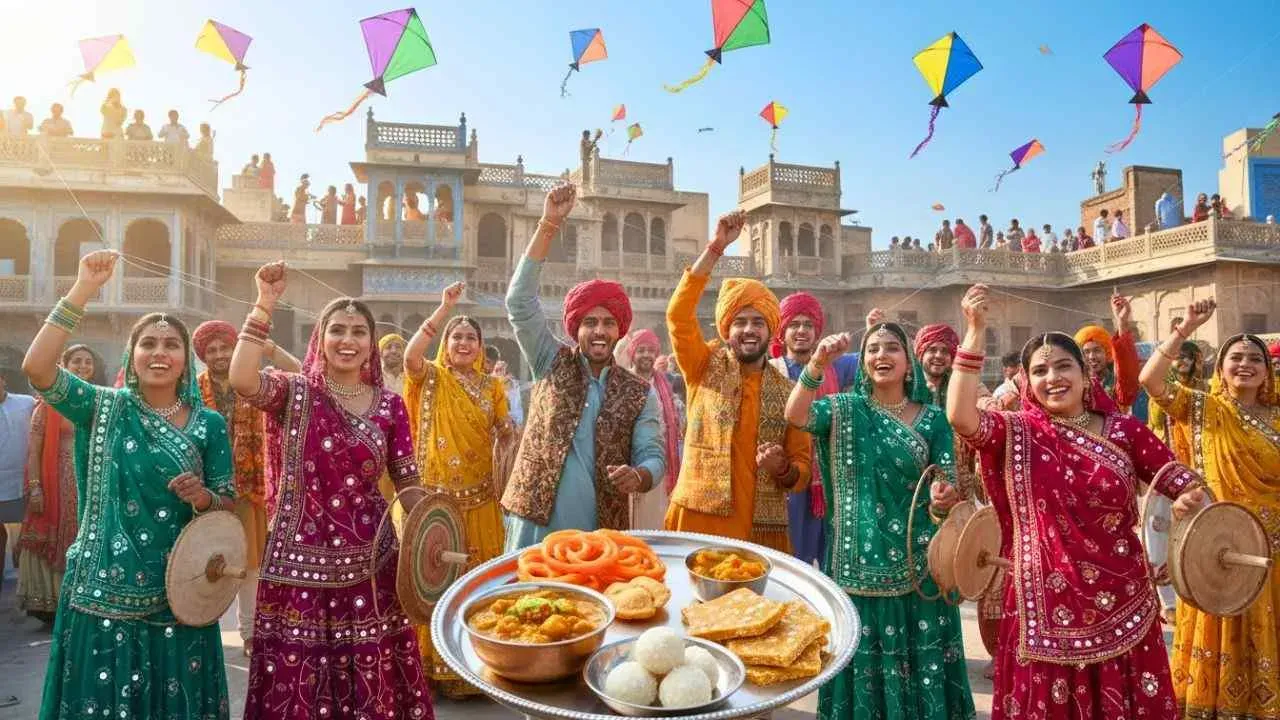
- Uttarayan: The Makar Sankranti is celebrated as ‘Uttarayan’ in Gujarat. On this day, people take a holy bath by adding some sesame seeds. They offer ‘arghya’ to the Sun god.
- Dana: People perform charity [dana], and it is considered auspicious. They donate various things to needy people. This is expected to reduce their sins. Common donations include food and clothes.
- Kite flying: Kite flying is considered the main highlight of the celebrations here. People fly colourful kites. During the night, illuminated paper lanterns called ‘tukkals’ are flown.
When is Makar Sankranti in 2026?
Across India, Makar Sankranti is on 14th January, 2026. In Tamil Nadu, the Pongal festival is celebrated from 14th to 17th January, 2026.
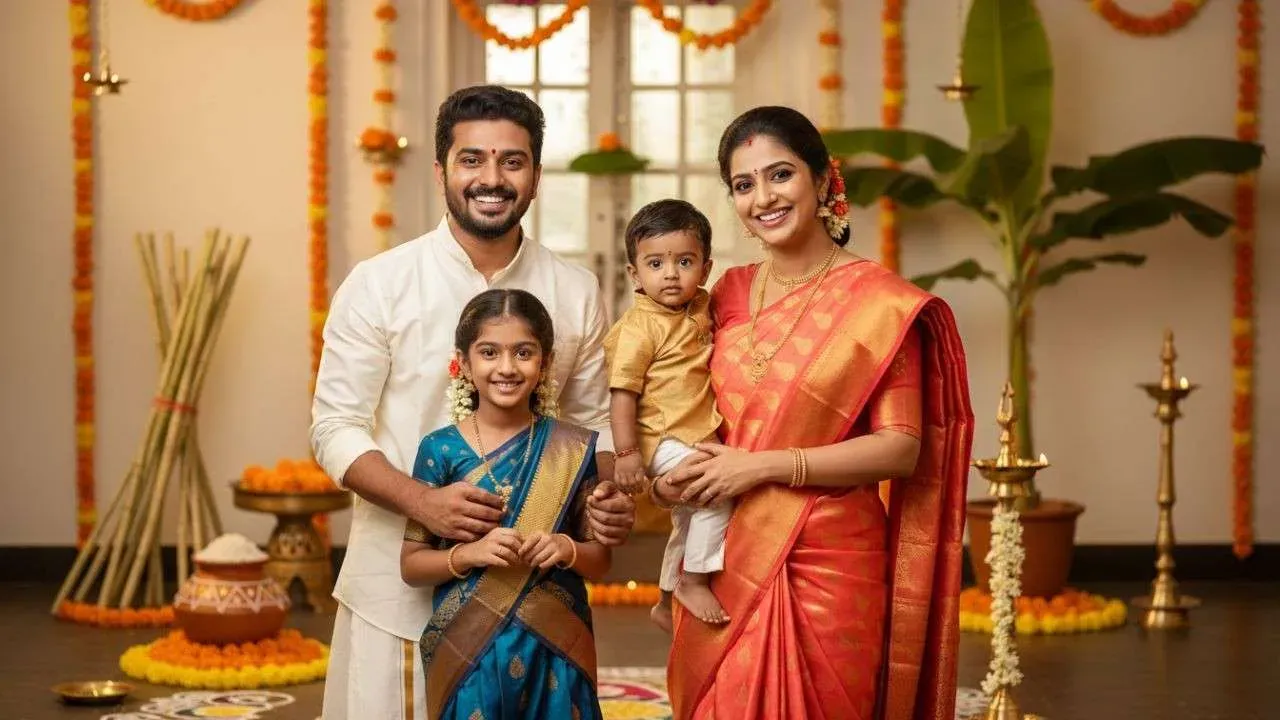
Conclusion
What you’ve just read reflects the beauty of how deeply India values farming and food. Across the nation, regardless of region or tradition, people express heartfelt gratitude to the Sun and cattle for supporting their livelihood and for the food they receive.
With that note, we wish you a very happy ‘Makar Sankranti’!!
